In this e-weekly:
- What are you going to do? (A bit of humor… [the smiling cat])
- As Pilgrims Flock to See Sister Wilhelmina, Abbey Begins 'Spiritual Haven' to All (Diocesan News and BEYOND)
- 12 Promises of the Sacred Heart of Jesus (Helpful Hints for Life)
- What are you going to do? (A bit of humor… [the smiling cat])
- As Pilgrims Flock to See Sister Wilhelmina, Abbey Begins 'Spiritual Haven' to All (Diocesan News and BEYOND)
- 12 Promises of the Sacred Heart of Jesus (Helpful Hints for Life)
Catholic Good News
Receiving the Gospel, Serving God and Neighbor
The Sacred Heart of Jesus
“I also have a heart as well as you.” Job 12:3
Receiving the Gospel, Serving God and Neighbor
The Sacred Heart of Jesus
“I also have a heart as well as you.” Job 12:3
Dear friends in Christ Jesus,
We recently celebrated the Solemnity of the Sacred Heart of Jesus. Here are some of its origins and rich blessings:
"And He showed me that it was His great desire of being loved by men and of withdrawing them from the path of ruin into which Satan hurls such crowds of them, that made Him form the design of manifesting His Heart to men, with all the treasures of love, of mercy, of grace, of sanctification and salvation which it contains, in order that those who desire to render Him and procure for Him all the honor and love possible, might themselves be abundantly enriched with those divine treasures of which this Heart is the source.”
These words were spoken by Jesus to St. Margaret Mary Alacoque on December 27, 1673, as He appeared to her to make known in a clearer way His immense love of humanity and his desire to save them. Jesus made known to her and through her to all of humanity His Sacred Heart. Her own religious superior and fellow nuns were skeptical, but through a cure of a bad illness she had many came to believe. When her revelations were submitted to theologians for analysis, they were dismissed as delusions. Jesus sent Blessed Claude de la Colombiere, a holy and experienced Jesuit Priest, as a confessor to the nuns. Seeing the work of the Lord in St. Margaret Mary he studied, submitted, and distributed the revelations given by Jesus. As Devotion to the Sacred Heart spread, Pope Clement XIII officially recognized it and approved the Devotion in 1765.
St. Margaret Mary Alacoque further wrote:
“He should be honored under the figure of this Heart of flesh, and its image should be exposed...He promised me that wherever this image should be exposed with a view to showing it special honor, He would pour forth His blessings and graces. This devotion was the last effort of His love that He would grant to men in these latter ages, in order to withdraw them from the empire of Satan which He desired to destroy, and thus to introduce them into the sweet liberty of the rule of His love, which He wished to restore in the hearts of all those who should embrace this devotion."..... "The devotion is so pleasing to Him that He can refuse nothing to those who practice it."
Peace and prayers in Jesus through Mary, loved by Saint Joseph,
Father Robert
P.S. This coming Sunday is the 11th Sunday of Ordinary Time. The readings can be found at: https://bible.usccb.org/bible/readings/061823.cfm
P.S.S. Sunday Readings with reflections and questions can be found at end of e-weekly.
We recently celebrated the Solemnity of the Sacred Heart of Jesus. Here are some of its origins and rich blessings:
"And He showed me that it was His great desire of being loved by men and of withdrawing them from the path of ruin into which Satan hurls such crowds of them, that made Him form the design of manifesting His Heart to men, with all the treasures of love, of mercy, of grace, of sanctification and salvation which it contains, in order that those who desire to render Him and procure for Him all the honor and love possible, might themselves be abundantly enriched with those divine treasures of which this Heart is the source.”
These words were spoken by Jesus to St. Margaret Mary Alacoque on December 27, 1673, as He appeared to her to make known in a clearer way His immense love of humanity and his desire to save them. Jesus made known to her and through her to all of humanity His Sacred Heart. Her own religious superior and fellow nuns were skeptical, but through a cure of a bad illness she had many came to believe. When her revelations were submitted to theologians for analysis, they were dismissed as delusions. Jesus sent Blessed Claude de la Colombiere, a holy and experienced Jesuit Priest, as a confessor to the nuns. Seeing the work of the Lord in St. Margaret Mary he studied, submitted, and distributed the revelations given by Jesus. As Devotion to the Sacred Heart spread, Pope Clement XIII officially recognized it and approved the Devotion in 1765.
St. Margaret Mary Alacoque further wrote:
“He should be honored under the figure of this Heart of flesh, and its image should be exposed...He promised me that wherever this image should be exposed with a view to showing it special honor, He would pour forth His blessings and graces. This devotion was the last effort of His love that He would grant to men in these latter ages, in order to withdraw them from the empire of Satan which He desired to destroy, and thus to introduce them into the sweet liberty of the rule of His love, which He wished to restore in the hearts of all those who should embrace this devotion."..... "The devotion is so pleasing to Him that He can refuse nothing to those who practice it."
Peace and prayers in Jesus through Mary, loved by Saint Joseph,
Father Robert
P.S. This coming Sunday is the 11th Sunday of Ordinary Time. The readings can be found at: https://bible.usccb.org/bible/readings/061823.cfm
P.S.S. Sunday Readings with reflections and questions can be found at end of e-weekly.
Sacred Heart (from Latin sacr-, sacer; “sacred” + from Latin cord-, cor “heart”)
- the physical Heart of Christ which also symbolizes the unfathomable love Jesus has for the Father and all humanity
[The physical Heart of Christ as the principal sign and symbol of the threefold love with which he loves his eternal Father and all mankind. It is, therefore, a symbol of the divine love he shares with the Father and the Holy Spirit but that he, the Word made flesh, alone manifests through a weak and perishable body, since "in Him dwells the fullness of the Godhead bodily" (Colossians 2:9). It is, besides, the symbol of that burning love which, infused into his soul, enriches the human will of Christ and enlightens and governs its acts by the most perfect knowledge derived both from the beatific vision and that which is directly infused. And finally it is the symbol also of sensible love, since the body of Christ possesses full powers of feeling and perception, in fact more so than any other human body (Pope Pius XII, Haurietis Aquas, II, 55-57).]
“Helpful Hints of Life”
12 Promises of the Sacred Heart of Jesus
Of the many promises Our Lord Jesus Christ did reveal to Saint Margaret Mary in favor of souls devoted to His Sacred Heart the principal ones are as follows:
1. I will give them all the graces necessary for their state of life.
2. I will give peace in their families.
3. I will console them in all their troubles.
4. I will be their refuge in life and especially in death.
5. I will abundantly bless all their undertakings.
6. Sinners shall find in my Heart the source and infinite ocean of mercy.
7. Tepid souls shall become fervent.
8. Fervent souls shall rise speedily to great perfection.
9. I will bless those places wherein the image of
My Sacred Heart shall be exposed and venerated.
10. I will give to priests the power to touch the most hardened hearts.
11. Persons who propagate this devotion shall
have their names eternally written in my Heart.
12. In the excess of the mercy of my Heart, I promise you that my all powerful love will grant to all those who will receive Communion on the First Fridays, for nine consecutive months, the grace of final repentance: they will not die in my displeasure, nor without receiving the sacraments; and my Heart will be their secure refuge in that last hour.
“Jesus knew and loved us each and all during his life, his agony and his Passion, and gave himself up for each one of us: "The Son of God. . . loved me and gave himself for me." He has loved us all with a human heart. For this reason, the Sacred Heart of Jesus, pierced by our sins and for our salvation, "is quite rightly considered the chief sign and symbol of that. . . love with which the divine Redeemer continually loves the eternal Father and all human beings" without exception.” Catechism of the Catholic Church #478
12 Promises of the Sacred Heart of Jesus
Of the many promises Our Lord Jesus Christ did reveal to Saint Margaret Mary in favor of souls devoted to His Sacred Heart the principal ones are as follows:
1. I will give them all the graces necessary for their state of life.
2. I will give peace in their families.
3. I will console them in all their troubles.
4. I will be their refuge in life and especially in death.
5. I will abundantly bless all their undertakings.
6. Sinners shall find in my Heart the source and infinite ocean of mercy.
7. Tepid souls shall become fervent.
8. Fervent souls shall rise speedily to great perfection.
9. I will bless those places wherein the image of
My Sacred Heart shall be exposed and venerated.
10. I will give to priests the power to touch the most hardened hearts.
11. Persons who propagate this devotion shall
have their names eternally written in my Heart.
12. In the excess of the mercy of my Heart, I promise you that my all powerful love will grant to all those who will receive Communion on the First Fridays, for nine consecutive months, the grace of final repentance: they will not die in my displeasure, nor without receiving the sacraments; and my Heart will be their secure refuge in that last hour.
“Jesus knew and loved us each and all during his life, his agony and his Passion, and gave himself up for each one of us: "The Son of God. . . loved me and gave himself for me." He has loved us all with a human heart. For this reason, the Sacred Heart of Jesus, pierced by our sins and for our salvation, "is quite rightly considered the chief sign and symbol of that. . . love with which the divine Redeemer continually loves the eternal Father and all human beings" without exception.” Catechism of the Catholic Church #478
Catholic Website of the Week
USCCB Website for Your Marriage
http://www.foryourmarriage.org
The U.S. bishops’ conference has set up a website to help prepare, live, heal, and bring your Marriage to heaven. Full of resources, tools, and encouraging stories. Is this what God wants to be of help to you?
USCCB Website for Your Marriage
http://www.foryourmarriage.org
The U.S. bishops’ conference has set up a website to help prepare, live, heal, and bring your Marriage to heaven. Full of resources, tools, and encouraging stories. Is this what God wants to be of help to you?
Diocesan News AND BEYOND
Guided by our Blessed Mother, the Benedictine Sisters of Mary, Queen of the Apostles live a life of prayer, song and work in Gower, Missouri. Making vestments is part and parcel of daily life at the abbey. (photo: Courtesy of the Benedictine Sisters of Mary, Queen of the Apostles)
Lindsey Weishar FeaturesJune 17, 2023With the discovery of Sister Wilhelmina Lancaster’s well-preserved body at the Abbey of the Benedictine Sisters of Mary, Queen of the Apostles in Gower, Missouri, the order perhaps best known for its beautiful albums of sacred chant has once again come into the public eye.
As thousands of pilgrims have flocked to their home in the weeks following the revelation of the exhumation of Sister Wilhelmina, the Benedictine nuns released a statement on their website, part of which read, “Many have voiced concern about the disruption to our life, but we have, thankfully, remained unaffected and able to continue on in our life of ora et labora, prayer and work, as Sister Wilhelmina would have it. Unless we looked out the front windows, or out at the crowds attending our Mass and Divine Offices, we would not even know people are here.”
Part of the order’s ability to maintain peace and contemplation amid such exterior changes is certainly due to their devotion to Christ and their rule of life. Their website describes their special devotion to Mary under the title of Queen of the Apostles and their dedication to praying for priests: “Totally consecrated to the Queen of Apostles, we take Our Lady’s hidden life at Ephesus as an inspiration for our own. We seek to be what she was for the early Church: a loving and prayerful support to the apostles, the first priests, and daily offer prayer and sacrifice for the sake of her spiritual sons.”
‘A Hidden Source of Spiritual Strength Through Prayer’The Register spoke with Mother Abbess Cecilia Snell, who shared about Sister Wilhelmina’s special love for priests and how it informed the charism of the Benedictine Sisters of Mary, Queen of the Apostles.
“Mother Teresa of Calcutta asked Sister Wilhelmina to be among her ‘Veronicas,’ a group of special intercessors for priests, after visiting Sister Wilhelmina's motherhouse in the early 1990s,” Mother Abbess Cecilia recalled. “Sister Wilhelmina wedded her love of tradition with her love of the priesthood in 1995, setting out for Elmhurst, Pennsylvania, where the Priestly Fraternity of St. Peter had just established its American headquarters. She faithfully helped at the seminary until its move to Nebraska, and as the community [of Benedictine sisters at Gower] settled into a more monastic way of life, she passed on this great love for priests. She drew inspiration from a stained-glass window of Pentecost at the chapel in Elmhurst, around which were the words Perseverantes Unaminite in Oratione (‘Persevering in One Heart in Prayer’), writing that she saw in this the ideal of her new community, praying and sacrificing for priests.”
“When we were to be elevated as an abbey, a motto had to be chosen,” Mother Abbess Cecilia continued. “Sister Wilhelmina was ill on the day we were discussing what it would be. We had no idea that we were choosing the self-same phrase that she had chosen 23 years earlier, and only found out about her choice of a motto in her writings after her death. So it was literally the movement of the Holy Spirit. She wanted us to be what Our Lady was for the apostles, a hidden source of spiritual strength through prayer.”
Benedictine LifeThe beauty of the nun’s life is its simplicity. In speaking of their charism on their website, the Benedictines note, “We cannot preach the Gospel to the nations nor bring the Lord to our tabernacles, but we can be ‘Love in the heart of the Church’ with firm adherence to her teaching, loyalty to the Holy Father, and deep-seated love of the traditional liturgy.”
Like St. Thérèse, who in her autobiography said, “In the heart of the Church, I will be love,” the Benedictine Sisters of Mary, Queen of the Apostles are missionaries without ever leaving their convent. Their vows of obedience, stability (staying in the same monastery throughout their lives), and conversion of life (which includes poverty and chastity, but also “conversatio, literally a continual turning to the Lord”) are the soil in which their key identity as daughters and brides of Christ flourishes.
Mother Abbess Cecilia described the daily life of the order in this way:
“In the Benedictine life, we speak of ‘three eights’: eight hours of prayer, eight hours of work, eight hours of sleep. It does not break up quite so tidily, but that is the ideal. We have eight ‘hours,’ that is, eight times in which the Divine Office (or Liturgy of the Hours) is chanted, a sung high Mass every day, and two periods of lectio divina (spiritual reading and mental prayer). We work in silence for the remainder of the day on vestments [for priests] and upkeep of the farm, house and garden, as well as correspondence. … We have one hour of recreation, which is when we are allowed to speak, usually while we are keeping our hands busy. We are always ready to go to bed at the end of the day, but take turns in the night in the church in prayer for priests.”
Lindsey Weishar FeaturesJune 17, 2023With the discovery of Sister Wilhelmina Lancaster’s well-preserved body at the Abbey of the Benedictine Sisters of Mary, Queen of the Apostles in Gower, Missouri, the order perhaps best known for its beautiful albums of sacred chant has once again come into the public eye.
As thousands of pilgrims have flocked to their home in the weeks following the revelation of the exhumation of Sister Wilhelmina, the Benedictine nuns released a statement on their website, part of which read, “Many have voiced concern about the disruption to our life, but we have, thankfully, remained unaffected and able to continue on in our life of ora et labora, prayer and work, as Sister Wilhelmina would have it. Unless we looked out the front windows, or out at the crowds attending our Mass and Divine Offices, we would not even know people are here.”
Part of the order’s ability to maintain peace and contemplation amid such exterior changes is certainly due to their devotion to Christ and their rule of life. Their website describes their special devotion to Mary under the title of Queen of the Apostles and their dedication to praying for priests: “Totally consecrated to the Queen of Apostles, we take Our Lady’s hidden life at Ephesus as an inspiration for our own. We seek to be what she was for the early Church: a loving and prayerful support to the apostles, the first priests, and daily offer prayer and sacrifice for the sake of her spiritual sons.”
‘A Hidden Source of Spiritual Strength Through Prayer’The Register spoke with Mother Abbess Cecilia Snell, who shared about Sister Wilhelmina’s special love for priests and how it informed the charism of the Benedictine Sisters of Mary, Queen of the Apostles.
“Mother Teresa of Calcutta asked Sister Wilhelmina to be among her ‘Veronicas,’ a group of special intercessors for priests, after visiting Sister Wilhelmina's motherhouse in the early 1990s,” Mother Abbess Cecilia recalled. “Sister Wilhelmina wedded her love of tradition with her love of the priesthood in 1995, setting out for Elmhurst, Pennsylvania, where the Priestly Fraternity of St. Peter had just established its American headquarters. She faithfully helped at the seminary until its move to Nebraska, and as the community [of Benedictine sisters at Gower] settled into a more monastic way of life, she passed on this great love for priests. She drew inspiration from a stained-glass window of Pentecost at the chapel in Elmhurst, around which were the words Perseverantes Unaminite in Oratione (‘Persevering in One Heart in Prayer’), writing that she saw in this the ideal of her new community, praying and sacrificing for priests.”
“When we were to be elevated as an abbey, a motto had to be chosen,” Mother Abbess Cecilia continued. “Sister Wilhelmina was ill on the day we were discussing what it would be. We had no idea that we were choosing the self-same phrase that she had chosen 23 years earlier, and only found out about her choice of a motto in her writings after her death. So it was literally the movement of the Holy Spirit. She wanted us to be what Our Lady was for the apostles, a hidden source of spiritual strength through prayer.”
Benedictine LifeThe beauty of the nun’s life is its simplicity. In speaking of their charism on their website, the Benedictines note, “We cannot preach the Gospel to the nations nor bring the Lord to our tabernacles, but we can be ‘Love in the heart of the Church’ with firm adherence to her teaching, loyalty to the Holy Father, and deep-seated love of the traditional liturgy.”
Like St. Thérèse, who in her autobiography said, “In the heart of the Church, I will be love,” the Benedictine Sisters of Mary, Queen of the Apostles are missionaries without ever leaving their convent. Their vows of obedience, stability (staying in the same monastery throughout their lives), and conversion of life (which includes poverty and chastity, but also “conversatio, literally a continual turning to the Lord”) are the soil in which their key identity as daughters and brides of Christ flourishes.
Mother Abbess Cecilia described the daily life of the order in this way:
“In the Benedictine life, we speak of ‘three eights’: eight hours of prayer, eight hours of work, eight hours of sleep. It does not break up quite so tidily, but that is the ideal. We have eight ‘hours,’ that is, eight times in which the Divine Office (or Liturgy of the Hours) is chanted, a sung high Mass every day, and two periods of lectio divina (spiritual reading and mental prayer). We work in silence for the remainder of the day on vestments [for priests] and upkeep of the farm, house and garden, as well as correspondence. … We have one hour of recreation, which is when we are allowed to speak, usually while we are keeping our hands busy. We are always ready to go to bed at the end of the day, but take turns in the night in the church in prayer for priests.”
‘Ora et Labora’(Photo: Courtesy of the Benedictine Sisters of Mary, Queen of the Apostles)
“We continue a tradition Sister Wilhelmina faithfully practiced, that of placing an ordination card at the foot of the crucifix in our community room each day, asking Our Lady to take our prayers especially for that priest. We seem to feel the effects of this and instinctively know who needs prayers. For example, we will sometimes have days where it seems everything is going wrong. Sisters check the crucifix, and, sure enough, there will be a bishop’s card that day, and we will see it as a sign that extra prayers and sacrifices are needed. We also devote much of our work to the making of vestments, a very privileged work.”
The nuns’ devotion to prayer also finds expression in their beautiful sung chant. An auditory sign of their solidarity as a community, their singing accompanies the Latin high Masses that take place daily in their chapel. This is a gift they’ve shared with the world through the recording of albums, topping the Billboard charts.
Mother Abbess Cecilia shared that the albums are the fruit of the abbey’s daily life: “Since we give so many hours to chanting each day, singing as a group comes naturally to us. Someone suggested that we record back in 2008, in order to share our life of prayer with the world without any intrusion. We recorded our first that year and have made a total of 14 since then! We are actually hoping to record another album before Christmas.”
Sister Wilhelmina’s Joyful WitnessIt is clear that Sister Wilhelmina’s spirit continues to strongly guide this community, as the order continues to grow and draw young women. Mother Abbess Cecilia noted:
“Sister Wilhelmina really saw us as a specifically Marian community and an ecclesial one. She always encouraged us to be very faithful to the daily recitation of the Rosary, to renew our Marian consecration each month, and to pray for the Church, especially its leaders.”
She also remembered her own personal connection to their foundress:
“I myself was so deeply stuck by Sister Wilhelmina when I met her 20 years ago. She was assisting at the first vows of a sister and Investiture of Novices at the cathedral in Scranton. Everything bespoke a deep peace and holiness about her, that she was so joyful to serve the Lord after so many years. That was definitely a draw for me in my own vocation, along with her unshakeable conviction to preserve and pass on the faith she loved so dearly. She was in love with Our Lord, and never fell out of love, teaching us all to be faithful spouses.”
This love finds expression in Sister Wilhelmina’s order in its orientation toward Mary, who always points to her Son:
“Sister Wilhelmina saw Our Lady’s mission as Queen of Apostles, beginning at the foot of the cross, when Our Lord said, ‘Behold thy son,’ to his mother, Mary,” Mother Abbess Cecilia explained. “She really felt we all needed to enter into that motherhood and extend the prayer of Our Lady throughout the Church. The crowning glory was really at Pentecost, when her prayer sent forth the apostles into the whole world. Sister Wilhelmina was constantly praying for a new Pentecost and the renewal of the priesthood.”
Peace Through It AllSuch holy fervor translates itself into the nuns’ way of life. The past couple of years have been peppered with the unexpected. From 2019-2021, there were some drive-by shootings at the abbey in Gower, including one in which a bullet went through Mother Abbess Cecilia’s bedroom window. These shootings prompted the building of the abbey walls in 2021. Of this incident, Mother Abbess Cecilia said, “I have to say, I rolled over and went back to sleep after I heard the bullet enter my room. When you have the Benedictine lifestyle ordering your life, your soul becomes ordered inside. That is why Pax is a phrase heading Benedictine correspondence and even our entryway: PAX INTRANTIBUS, ‘Peace to all entering.’”
With the discovery of Sister Wilhelmina’s well-preserved body and the unexpected attention this has drawn — pilgrims may now pray before her body encased under glass in the abbey’s church — the sisters continue to be ordered by their way of life.
As Mother Abbess Cecilia put it, “Gunshots or incorruptibles, we take everything in stride as part of God’s will for us in our journey toward heaven.”
READ
God’s Will: The Life and Works of Sister Mary Wilhelmina; available at EWTNRC.com or (800) 854-6316.
The nuns’ devotion to prayer also finds expression in their beautiful sung chant. An auditory sign of their solidarity as a community, their singing accompanies the Latin high Masses that take place daily in their chapel. This is a gift they’ve shared with the world through the recording of albums, topping the Billboard charts.
Mother Abbess Cecilia shared that the albums are the fruit of the abbey’s daily life: “Since we give so many hours to chanting each day, singing as a group comes naturally to us. Someone suggested that we record back in 2008, in order to share our life of prayer with the world without any intrusion. We recorded our first that year and have made a total of 14 since then! We are actually hoping to record another album before Christmas.”
Sister Wilhelmina’s Joyful WitnessIt is clear that Sister Wilhelmina’s spirit continues to strongly guide this community, as the order continues to grow and draw young women. Mother Abbess Cecilia noted:
“Sister Wilhelmina really saw us as a specifically Marian community and an ecclesial one. She always encouraged us to be very faithful to the daily recitation of the Rosary, to renew our Marian consecration each month, and to pray for the Church, especially its leaders.”
She also remembered her own personal connection to their foundress:
“I myself was so deeply stuck by Sister Wilhelmina when I met her 20 years ago. She was assisting at the first vows of a sister and Investiture of Novices at the cathedral in Scranton. Everything bespoke a deep peace and holiness about her, that she was so joyful to serve the Lord after so many years. That was definitely a draw for me in my own vocation, along with her unshakeable conviction to preserve and pass on the faith she loved so dearly. She was in love with Our Lord, and never fell out of love, teaching us all to be faithful spouses.”
This love finds expression in Sister Wilhelmina’s order in its orientation toward Mary, who always points to her Son:
“Sister Wilhelmina saw Our Lady’s mission as Queen of Apostles, beginning at the foot of the cross, when Our Lord said, ‘Behold thy son,’ to his mother, Mary,” Mother Abbess Cecilia explained. “She really felt we all needed to enter into that motherhood and extend the prayer of Our Lady throughout the Church. The crowning glory was really at Pentecost, when her prayer sent forth the apostles into the whole world. Sister Wilhelmina was constantly praying for a new Pentecost and the renewal of the priesthood.”
Peace Through It AllSuch holy fervor translates itself into the nuns’ way of life. The past couple of years have been peppered with the unexpected. From 2019-2021, there were some drive-by shootings at the abbey in Gower, including one in which a bullet went through Mother Abbess Cecilia’s bedroom window. These shootings prompted the building of the abbey walls in 2021. Of this incident, Mother Abbess Cecilia said, “I have to say, I rolled over and went back to sleep after I heard the bullet enter my room. When you have the Benedictine lifestyle ordering your life, your soul becomes ordered inside. That is why Pax is a phrase heading Benedictine correspondence and even our entryway: PAX INTRANTIBUS, ‘Peace to all entering.’”
With the discovery of Sister Wilhelmina’s well-preserved body and the unexpected attention this has drawn — pilgrims may now pray before her body encased under glass in the abbey’s church — the sisters continue to be ordered by their way of life.
As Mother Abbess Cecilia put it, “Gunshots or incorruptibles, we take everything in stride as part of God’s will for us in our journey toward heaven.”
READ
God’s Will: The Life and Works of Sister Mary Wilhelmina; available at EWTNRC.com or (800) 854-6316.
'Fastest Nun in the West' on path for sainthood
By RUSSELL CONTRERAS
This undated photo provided by the Palace of the Governors shows Sister Blandina Segale, who co-founded the first hospitals and schools in New Mexico and reportedly challenged Billy the Kid. The Archdiocese of Santa Fe is exploring sainthood for the Italian-born nun for her work with the poor, immigrants and Hispanics and Native Americans during the frontier days. (AP Photo/Palace of the Governors)
ALBUQUERQUE, N.M. (AP) — The Archdiocese of Santa Fe announced Wednesday it is exploring sainthood for an Italian-born nun who challenged Billy the Kid, calmed angry mobs and helped open New Mexico territory hospitals and schools.
Archbishop Michael Sheehan said he has received permission from the Vatican to open the "Sainthood Cause" for Sister Blandina Segale, an educator and social worker who worked in Ohio, Colorado and New Mexico.
It's the first time in New Mexico's 400-year history with the Roman Catholic Church that a decree opening the cause of beatification and canonization has been declared, church officials said.
"There are other holy people who have worked here," said Allen Sanchez, president and CEO for CHI St. Joseph's Children in Albuquerque, a social service agency Segale founded. "But this would be a saint (who) started institutions in New Mexico that are still in operation."
Segale, a nun with the Sisters of Charity of Cincinnati, came to Trinidad, Colorado, in 1877 to teach poor children and was later transferred to Santa Fe, where she co-founded public and Catholic schools. During her time in New Mexico, she worked with the poor, the sick and immigrants. She also advocated on behalf of Hispanics and Native Americans who were losing their land to swindlers.
Her encounters with Old West outlaws later became the stuff of legend and were the subject of an episode of the CBS series "Death Valley Days." The episode, called "The Fastest Nun in the West," focused on her efforts to save a man from a lynch mob.
But her encounters with Billy the Kid remain among her most popular and well-known Western frontier adventures.
According to one story, she received a tip that The Kid was coming to her town to scalp the four doctors who had refused to treat his friend's gunshot wound. Segale nursed the friend to health, and when Billy came to Trinidad, Colorado, to thank her, she asked him to abandon his violent plan. He agreed.
Another story says The Kid and his gang attempted to rob a covered wagon traveling on the frontier. But when the famous outlaw looked inside, he saw Segale.
"He just tipped his hat," said Sheehan, the archbishop. "And left."
Many of the tales she wrote in letters to her sister later became the book, "At the End of the Santa Fe Trail."
"She was just amazing," said Victoria Marie Forde of the Sisters of Charity of Cincinnati. "It's tough to live up to her example."
Segale found St. Joseph's Hospital in Albuquerque before returning to Cincinnati in 1897 to start Santa Maria Institute, which served recent immigrants.
Her work resonates today, with poverty, immigration and child care still high-profile issues, Sanchez said.
Officials say it could take years — possibly a century — before Segale becomes a saint. The Vatican has to investigate her work and monitor for any related "miracles."
Those miracles could come in the form of healings, assistance to recent Central American immigrant children detained at the U.S. border or some other unexplained occurrences after devotees pray to her, Sanchez said.
"She's going to have to keep working," Sanchez said. "She's not done."
Pope Francis: To have a dialogue with God we need to make ourselves like a small child
Pope Francis celebrating Mass at Santa Marta residence
27/06
(Vatican Radio) Pope Francis said God is like a gentle father who holds us by the hand and we need to become like a small child to have a dialogue with Him. This was the focus of his homily during the Mass he celebrated on Friday in the Santa Marta residence.
June 27th is the feast of the Sacred Heart of Jesus and the Pope’s homily was a reflection on the nature of the love between God and his people. He described this feast as a celebration of God’s love in Jesus Christ.
“There are two aspects to this love. First, love is more about giving than receiving. Second, love is more about actions than words. When we say it’s more about giving than receiving, that’s because love communicates, it always communicates. And it’s received by the one who is loved. And when we say that it’s more about actions than words, that’s because love always generates life and makes us grow.”
Pope Francis said that in order to understand God’s love we need to become small like a child and what God seeks from us is a relationship like that between a father and child. God gives us a caress and tells us: I’m by your side.
“This is the tenderness of our Lord and of His love; this is what He tells us and this gives us the strength to be tender. But if we feel we’re strong, we’ll never experience those caresses from the Lord, those caresses from Him that are so wonderful. ‘Don’t be afraid, for I am with you and I’ll hold your hand’… These are all words spoken by the Lord that help us to understand that mysterious love He has for us. And when Jesus speaks about Himself, he says: ‘ I am meek and humble of heart.’ Even He, the Son of God, lowers himself to receive his Father’s love.”
Pope Francis concluded by homily by noting that God is always there in front of us, waiting for us and urges God to give us the grace to enter into the mysterious world of his love.
“When we arrive, He’s there. When we look for Him, He has already been looking for us. He is always in front of us, waiting to receive us in His heart, in His love. And these two things can help us to understand the mystery of God’s love for us. In order to communicate this, He needs us to be like small children, to lower ourselves. And at the same time, He needs our astonishment when we look for Him and find Him there, waiting for us."
" The priests, prudent cooperators of the episcopal college and its support and instrument, called to the service of the People of God, constitute, together with their bishop, a unique sacerdotal college (presbyterium) dedicated, it is, true to a variety of distinct duties. In each local assembly of the faithful they represent, in a certain sense, the bishop, with whom they are associated in all trust and generosity; in part they take upon themselves his duties and solicitude and in their daily toils discharge them." priests can exercise their ministry only in dependence on the bishop and in communion with him. The promise of obedience they make to the bishop at the moment of ordination and the kiss of peace from him at the end of the ordination liturgy mean that the bishop considers them his co-workers, his sons, his brothers and his friends, and that they in return owe him love and obedience.”
Catechism of the Catholic Church #1576
By RUSSELL CONTRERAS
This undated photo provided by the Palace of the Governors shows Sister Blandina Segale, who co-founded the first hospitals and schools in New Mexico and reportedly challenged Billy the Kid. The Archdiocese of Santa Fe is exploring sainthood for the Italian-born nun for her work with the poor, immigrants and Hispanics and Native Americans during the frontier days. (AP Photo/Palace of the Governors)
ALBUQUERQUE, N.M. (AP) — The Archdiocese of Santa Fe announced Wednesday it is exploring sainthood for an Italian-born nun who challenged Billy the Kid, calmed angry mobs and helped open New Mexico territory hospitals and schools.
Archbishop Michael Sheehan said he has received permission from the Vatican to open the "Sainthood Cause" for Sister Blandina Segale, an educator and social worker who worked in Ohio, Colorado and New Mexico.
It's the first time in New Mexico's 400-year history with the Roman Catholic Church that a decree opening the cause of beatification and canonization has been declared, church officials said.
"There are other holy people who have worked here," said Allen Sanchez, president and CEO for CHI St. Joseph's Children in Albuquerque, a social service agency Segale founded. "But this would be a saint (who) started institutions in New Mexico that are still in operation."
Segale, a nun with the Sisters of Charity of Cincinnati, came to Trinidad, Colorado, in 1877 to teach poor children and was later transferred to Santa Fe, where she co-founded public and Catholic schools. During her time in New Mexico, she worked with the poor, the sick and immigrants. She also advocated on behalf of Hispanics and Native Americans who were losing their land to swindlers.
Her encounters with Old West outlaws later became the stuff of legend and were the subject of an episode of the CBS series "Death Valley Days." The episode, called "The Fastest Nun in the West," focused on her efforts to save a man from a lynch mob.
But her encounters with Billy the Kid remain among her most popular and well-known Western frontier adventures.
According to one story, she received a tip that The Kid was coming to her town to scalp the four doctors who had refused to treat his friend's gunshot wound. Segale nursed the friend to health, and when Billy came to Trinidad, Colorado, to thank her, she asked him to abandon his violent plan. He agreed.
Another story says The Kid and his gang attempted to rob a covered wagon traveling on the frontier. But when the famous outlaw looked inside, he saw Segale.
"He just tipped his hat," said Sheehan, the archbishop. "And left."
Many of the tales she wrote in letters to her sister later became the book, "At the End of the Santa Fe Trail."
"She was just amazing," said Victoria Marie Forde of the Sisters of Charity of Cincinnati. "It's tough to live up to her example."
Segale found St. Joseph's Hospital in Albuquerque before returning to Cincinnati in 1897 to start Santa Maria Institute, which served recent immigrants.
Her work resonates today, with poverty, immigration and child care still high-profile issues, Sanchez said.
Officials say it could take years — possibly a century — before Segale becomes a saint. The Vatican has to investigate her work and monitor for any related "miracles."
Those miracles could come in the form of healings, assistance to recent Central American immigrant children detained at the U.S. border or some other unexplained occurrences after devotees pray to her, Sanchez said.
"She's going to have to keep working," Sanchez said. "She's not done."
Pope Francis: To have a dialogue with God we need to make ourselves like a small child
Pope Francis celebrating Mass at Santa Marta residence
27/06
(Vatican Radio) Pope Francis said God is like a gentle father who holds us by the hand and we need to become like a small child to have a dialogue with Him. This was the focus of his homily during the Mass he celebrated on Friday in the Santa Marta residence.
June 27th is the feast of the Sacred Heart of Jesus and the Pope’s homily was a reflection on the nature of the love between God and his people. He described this feast as a celebration of God’s love in Jesus Christ.
“There are two aspects to this love. First, love is more about giving than receiving. Second, love is more about actions than words. When we say it’s more about giving than receiving, that’s because love communicates, it always communicates. And it’s received by the one who is loved. And when we say that it’s more about actions than words, that’s because love always generates life and makes us grow.”
Pope Francis said that in order to understand God’s love we need to become small like a child and what God seeks from us is a relationship like that between a father and child. God gives us a caress and tells us: I’m by your side.
“This is the tenderness of our Lord and of His love; this is what He tells us and this gives us the strength to be tender. But if we feel we’re strong, we’ll never experience those caresses from the Lord, those caresses from Him that are so wonderful. ‘Don’t be afraid, for I am with you and I’ll hold your hand’… These are all words spoken by the Lord that help us to understand that mysterious love He has for us. And when Jesus speaks about Himself, he says: ‘ I am meek and humble of heart.’ Even He, the Son of God, lowers himself to receive his Father’s love.”
Pope Francis concluded by homily by noting that God is always there in front of us, waiting for us and urges God to give us the grace to enter into the mysterious world of his love.
“When we arrive, He’s there. When we look for Him, He has already been looking for us. He is always in front of us, waiting to receive us in His heart, in His love. And these two things can help us to understand the mystery of God’s love for us. In order to communicate this, He needs us to be like small children, to lower ourselves. And at the same time, He needs our astonishment when we look for Him and find Him there, waiting for us."
" The priests, prudent cooperators of the episcopal college and its support and instrument, called to the service of the People of God, constitute, together with their bishop, a unique sacerdotal college (presbyterium) dedicated, it is, true to a variety of distinct duties. In each local assembly of the faithful they represent, in a certain sense, the bishop, with whom they are associated in all trust and generosity; in part they take upon themselves his duties and solicitude and in their daily toils discharge them." priests can exercise their ministry only in dependence on the bishop and in communion with him. The promise of obedience they make to the bishop at the moment of ordination and the kiss of peace from him at the end of the ordination liturgy mean that the bishop considers them his co-workers, his sons, his brothers and his friends, and that they in return owe him love and obedience.”
Catechism of the Catholic Church #1576
A bit of humor…
What are you going to do?
I used to be indecisive. Now I'm not sure.
I like work. It fascinates me. I sit and look at it for hours.
Why does someone believe you when you say there are four billion stars, but check when you say the paint is wet?
The sole purpose of a child's middle name, is so he can tell when he's really in trouble.
There was a very gracious lady who was mailing an old family Bible to her brother in another part of the country. "Is there anything breakable in here?" asked the postal clerk. "Only the Ten Commandments." answered the lady.
==================================================================
"Somebody has said there are only two kinds of people in the world.
There are those who wake up in the morning and say, "Good morning, Lord," and there are those who wake up in the morning and say, "Good Lord, it's morning."
==================================================================
A minister parked his car in a no-parking zone in a large city because he was short of time and couldn't find a space with a meter. Then he put a note under the windshield wiper that read: "I have circled the block 10 times. If I don't park here, I'll miss my appointment. Forgive us our trespasses." When he returned, he found a citation from a police officer along with this note "I've circled this block for 10 years. If I don't give you a ticket I'll lose my job. Lead us not into temptation."
==================================================================
While driving in Pennsylvania , a family caught up to an Amish carriage. The owner of the carriage obviously had a sense of humor, because attached to the back of the carriage was a hand printed sign...
"Energy efficient vehicle: Runs on oats and grass. Caution: Do not step in exhaust."
What are you going to do?
I used to be indecisive. Now I'm not sure.
I like work. It fascinates me. I sit and look at it for hours.
Why does someone believe you when you say there are four billion stars, but check when you say the paint is wet?
The sole purpose of a child's middle name, is so he can tell when he's really in trouble.
There was a very gracious lady who was mailing an old family Bible to her brother in another part of the country. "Is there anything breakable in here?" asked the postal clerk. "Only the Ten Commandments." answered the lady.
==================================================================
"Somebody has said there are only two kinds of people in the world.
There are those who wake up in the morning and say, "Good morning, Lord," and there are those who wake up in the morning and say, "Good Lord, it's morning."
==================================================================
A minister parked his car in a no-parking zone in a large city because he was short of time and couldn't find a space with a meter. Then he put a note under the windshield wiper that read: "I have circled the block 10 times. If I don't park here, I'll miss my appointment. Forgive us our trespasses." When he returned, he found a citation from a police officer along with this note "I've circled this block for 10 years. If I don't give you a ticket I'll lose my job. Lead us not into temptation."
==================================================================
While driving in Pennsylvania , a family caught up to an Amish carriage. The owner of the carriage obviously had a sense of humor, because attached to the back of the carriage was a hand printed sign...
"Energy efficient vehicle: Runs on oats and grass. Caution: Do not step in exhaust."
Prayer for Priests
by St. Catherine of Siena
I beseech You, direct the hearts and wills of the servants of Your Bride, the Holy Church, unto Yourself so that they may follow the poor, bleeding, humble, and gentle Lamb of God on the way of the Cross. Make them angels in the shape of men; for after all, they have to administer and distribute the Body and Blood of Your Only Begotten Son! Amen.
by St. Catherine of Siena
I beseech You, direct the hearts and wills of the servants of Your Bride, the Holy Church, unto Yourself so that they may follow the poor, bleeding, humble, and gentle Lamb of God on the way of the Cross. Make them angels in the shape of men; for after all, they have to administer and distribute the Body and Blood of Your Only Begotten Son! Amen.
“Only validly ordained priests can preside at the Eucharist and consecrate the bread and the wine so that they become the Body and Blood of the Lord.”
Catechism of the Catholic Church #1411
+JMJ+
SUNDAY MASS READINGS AND QUESTIONS
for Self-Reflection, Couples or Family Discussion
11th Sunday of Ordinary Time – Sunday, June 18th, 2023
The First Reading – Exodus 19:2-6a
In those days, the Israelites came to the desert of Sinai and pitched camp. While Israel was encamped here in front of the mountain, Moses went up the mountain to God. Then the LORD called to him and said, “Thus shall you say to the house of Jacob; tell the Israelites: You have seen for yourselves how I treated the Egyptians and how I bore you up on eagle wings and brought you here to myself. Therefore, if you hearken to my voice and keep my covenant, you shall be my special possession, dearer to me than all other people, though all the earth is mine. You shall be to me a kingdom of priests, a holy nation.”
Reflection
The words God speaks to Israel in today’s First Reading are intended for us as well. The Church is the fulfillment of God’s covenant promises to Israel—a kingdom of priests and a holy nation (see Deuteronomy 26:19; Isaiah 62:12). In the Church, we have been gathered as the new “Israel of God” (see Galatians 6:16). He has made us His own people, the flock He tends, as we sing in today’s Psalm. Moses was Israel’s first shepherd (see Exodus 3:1). With the Promised Land in view, he prayed that God would raise up a successor so that God’s people would not be left as sheep without a shepherd (see Numbers 27:17). These same words are used in today’s Gospel to describe Jesus’ pity for the crowds, who are “troubled and abandoned, like sheep without a shepherd.”
Adults – To be holy is to be set aside for the Lord. Do you see yourself as set aside for the Lord?
Teens – Do you let the Lord into every part of your life?
Kids – How can you work to make Jesus a part of your daily life?
Responsorial- Psalm 100:1, 2, 3-5
R. We are his people: the sheep of his flock.
Sing joyfully to the LORD, all you lands;
serve the LORD with gladness;
come before him with joyful song.
R. We are his people: the sheep of his flock.
Know that the LORD is God;
he made us, his we are;
his people, the flock he tends.
R. We are his people: the sheep of his flock.
The LORD is good:
his kindness endures forever,
and his faithfulness to all generations.
R. We are his people: the sheep of his flock.
Reflection
This Psalm is another reminder in today’s readings that we belong to the Lord, and we are His children whom he loves. Do you ever struggle to feel loved by the Lord? Take this to prayer, or to a trusted spiritual director.
The Second Reading- Romans 5:6-11
Brothers and sisters: Christ, while we were still helpless, yet died at the appointed time for the ungodly. Indeed, only with difficulty does one die for a just person, though perhaps for a good person one might even find courage to die. But God proves his love for us in that while we were still sinners Christ died for us. How much more then, since we are now justified by his blood, will we be saved through him from the wrath. Indeed, if, while we were enemies, we were reconciled to God through the death of his Son, how much more, once reconciled, will we be saved by his life. Not only that, but we also boast of God through our Lord Jesus Christ, through whom we have now received reconciliation.
Reflection - Together we have been saved and reconciled to God, as we hear in today’s Epistle. As He delivered Israel, He has also made us a kingdom of priests in the Church (see Revelation 1:6), and makes salvation available to all of mankind. Saint Paul makes it clear that the community of the Church is one Body – salvation is a communal effort!
-When you think of your church family, do you see them as brothers and sisters? True family? That’s how Jesus sees us. How can you help foster community in your parish?
The Holy Gospel according to Matthew 9:36-10:8
At the sight of the crowds, Jesus’ heart was moved with pity for them because they were troubled and abandoned, like sheep without a shepherd. Then he said to his disciples, “The harvest is abundant but the laborers are few; so ask the master of the harvest to send out laborers for his harvest.” Then he summoned his twelve disciples and gave them authority over unclean spirits to drive them out and to cure every disease and every illness. The names of the twelve apostles are these: first, Simon called Peter, and his brother Andrew; James, the son of Zebedee, and his brother John; Philip and Bartholomew, Thomas and Matthew the tax collector; James, the son of Alphaeus, and Thaddeus; Simon from Cana, and Judas Iscariot who betrayed him. Jesus sent out these twelve after instructing them thus, “Do not go into pagan territory or enter a Samaritan town. Go rather to the lost sheep of the house of Israel. As you go, make this proclamation: ‘The kingdom of heaven is at hand.’ Cure the sick, raise the dead, cleanse lepers, drive out demons. Without cost you have received; without cost you are to give.”
Reflection Jesus is the new Moses and new David promised by the prophets, a divine shepherd-king sent to restore God’s priestly kingdom (see John 10:11). As Moses commissioned Joshua as his successor, so we see Jesus today giving the Twelve His powers and authority (see Matthew 9:35; 10:1). In God’s plan, they are to seek out the lost sheep of Israel first and then bring all nations into the fold (see Acts 13:46; Romans 1:16). So we come in this Mass to serve Him with gladness, to praise His kindness, which endures forever.
Adults – What do you think of when you hear the Kingdom of God? It isn’t a metaphor but a real, true, and working kingdom that you are a part of!
Teens – The Apostles were regular people who loved and followed Jesus with their whole hearts, and He did amazing things through them. What might He want to do through you?
Kids - How can you let Jesus work through you?
LIVING THE WORD OF GOD THIS WEEK! - Catechism of the Catholic Church, 863:
The whole Church is apostolic, in that she remains, through the successors of St. Peter and the other apostles, in communion of faith and life with her origin and in that she is "sent out" into the whole world. All members of the Church share in this mission, though in various ways. "The Christian vocation is, of its nature, a vocation to the apostolate as well." Indeed, we call an apostolate "every activity of the Mystical Body" that aims "to spread the Kingdom of Christ over all the earth."
There are thousands of men and women in heaven today who owe their salvation, under God, to the good example of a sincere Christian neighbor. After good example, comes good advice. A suggestion, a hint, an encouragement, kindly and charitably offered, may often turn a neighbor from evil ways. This good advice must always be humbly and charitably given. Nobody, a sinner least of all, wants to be lectured or "preached at." St. Francis de Sales, the gentlest of apostles, said that one will catch more flies with a spoonful of honey than with a barrel of vinegar. There are pious Christians who abhor sin so much that they abhor and repel the sinner, as well. In this, they are more pharisaical than Christlike. He abhorred sin, but he still loved the sinner and wanted him saved. The harvest is plentiful; indeed it is huge. But let not its huge size frighten us. If everyone reaps his own corner, we shall all meet in the center of the harvest-field some day. -Excerpted from The Sunday Readings by Fr. Kevin O'Sullivan, O.F.M.
ReplyForward
Catechism of the Catholic Church #1411
+JMJ+
SUNDAY MASS READINGS AND QUESTIONS
for Self-Reflection, Couples or Family Discussion
11th Sunday of Ordinary Time – Sunday, June 18th, 2023
The First Reading – Exodus 19:2-6a
In those days, the Israelites came to the desert of Sinai and pitched camp. While Israel was encamped here in front of the mountain, Moses went up the mountain to God. Then the LORD called to him and said, “Thus shall you say to the house of Jacob; tell the Israelites: You have seen for yourselves how I treated the Egyptians and how I bore you up on eagle wings and brought you here to myself. Therefore, if you hearken to my voice and keep my covenant, you shall be my special possession, dearer to me than all other people, though all the earth is mine. You shall be to me a kingdom of priests, a holy nation.”
Reflection
The words God speaks to Israel in today’s First Reading are intended for us as well. The Church is the fulfillment of God’s covenant promises to Israel—a kingdom of priests and a holy nation (see Deuteronomy 26:19; Isaiah 62:12). In the Church, we have been gathered as the new “Israel of God” (see Galatians 6:16). He has made us His own people, the flock He tends, as we sing in today’s Psalm. Moses was Israel’s first shepherd (see Exodus 3:1). With the Promised Land in view, he prayed that God would raise up a successor so that God’s people would not be left as sheep without a shepherd (see Numbers 27:17). These same words are used in today’s Gospel to describe Jesus’ pity for the crowds, who are “troubled and abandoned, like sheep without a shepherd.”
Adults – To be holy is to be set aside for the Lord. Do you see yourself as set aside for the Lord?
Teens – Do you let the Lord into every part of your life?
Kids – How can you work to make Jesus a part of your daily life?
Responsorial- Psalm 100:1, 2, 3-5
R. We are his people: the sheep of his flock.
Sing joyfully to the LORD, all you lands;
serve the LORD with gladness;
come before him with joyful song.
R. We are his people: the sheep of his flock.
Know that the LORD is God;
he made us, his we are;
his people, the flock he tends.
R. We are his people: the sheep of his flock.
The LORD is good:
his kindness endures forever,
and his faithfulness to all generations.
R. We are his people: the sheep of his flock.
Reflection
This Psalm is another reminder in today’s readings that we belong to the Lord, and we are His children whom he loves. Do you ever struggle to feel loved by the Lord? Take this to prayer, or to a trusted spiritual director.
The Second Reading- Romans 5:6-11
Brothers and sisters: Christ, while we were still helpless, yet died at the appointed time for the ungodly. Indeed, only with difficulty does one die for a just person, though perhaps for a good person one might even find courage to die. But God proves his love for us in that while we were still sinners Christ died for us. How much more then, since we are now justified by his blood, will we be saved through him from the wrath. Indeed, if, while we were enemies, we were reconciled to God through the death of his Son, how much more, once reconciled, will we be saved by his life. Not only that, but we also boast of God through our Lord Jesus Christ, through whom we have now received reconciliation.
Reflection - Together we have been saved and reconciled to God, as we hear in today’s Epistle. As He delivered Israel, He has also made us a kingdom of priests in the Church (see Revelation 1:6), and makes salvation available to all of mankind. Saint Paul makes it clear that the community of the Church is one Body – salvation is a communal effort!
-When you think of your church family, do you see them as brothers and sisters? True family? That’s how Jesus sees us. How can you help foster community in your parish?
The Holy Gospel according to Matthew 9:36-10:8
At the sight of the crowds, Jesus’ heart was moved with pity for them because they were troubled and abandoned, like sheep without a shepherd. Then he said to his disciples, “The harvest is abundant but the laborers are few; so ask the master of the harvest to send out laborers for his harvest.” Then he summoned his twelve disciples and gave them authority over unclean spirits to drive them out and to cure every disease and every illness. The names of the twelve apostles are these: first, Simon called Peter, and his brother Andrew; James, the son of Zebedee, and his brother John; Philip and Bartholomew, Thomas and Matthew the tax collector; James, the son of Alphaeus, and Thaddeus; Simon from Cana, and Judas Iscariot who betrayed him. Jesus sent out these twelve after instructing them thus, “Do not go into pagan territory or enter a Samaritan town. Go rather to the lost sheep of the house of Israel. As you go, make this proclamation: ‘The kingdom of heaven is at hand.’ Cure the sick, raise the dead, cleanse lepers, drive out demons. Without cost you have received; without cost you are to give.”
Reflection Jesus is the new Moses and new David promised by the prophets, a divine shepherd-king sent to restore God’s priestly kingdom (see John 10:11). As Moses commissioned Joshua as his successor, so we see Jesus today giving the Twelve His powers and authority (see Matthew 9:35; 10:1). In God’s plan, they are to seek out the lost sheep of Israel first and then bring all nations into the fold (see Acts 13:46; Romans 1:16). So we come in this Mass to serve Him with gladness, to praise His kindness, which endures forever.
Adults – What do you think of when you hear the Kingdom of God? It isn’t a metaphor but a real, true, and working kingdom that you are a part of!
Teens – The Apostles were regular people who loved and followed Jesus with their whole hearts, and He did amazing things through them. What might He want to do through you?
Kids - How can you let Jesus work through you?
LIVING THE WORD OF GOD THIS WEEK! - Catechism of the Catholic Church, 863:
The whole Church is apostolic, in that she remains, through the successors of St. Peter and the other apostles, in communion of faith and life with her origin and in that she is "sent out" into the whole world. All members of the Church share in this mission, though in various ways. "The Christian vocation is, of its nature, a vocation to the apostolate as well." Indeed, we call an apostolate "every activity of the Mystical Body" that aims "to spread the Kingdom of Christ over all the earth."
There are thousands of men and women in heaven today who owe their salvation, under God, to the good example of a sincere Christian neighbor. After good example, comes good advice. A suggestion, a hint, an encouragement, kindly and charitably offered, may often turn a neighbor from evil ways. This good advice must always be humbly and charitably given. Nobody, a sinner least of all, wants to be lectured or "preached at." St. Francis de Sales, the gentlest of apostles, said that one will catch more flies with a spoonful of honey than with a barrel of vinegar. There are pious Christians who abhor sin so much that they abhor and repel the sinner, as well. In this, they are more pharisaical than Christlike. He abhorred sin, but he still loved the sinner and wanted him saved. The harvest is plentiful; indeed it is huge. But let not its huge size frighten us. If everyone reaps his own corner, we shall all meet in the center of the harvest-field some day. -Excerpted from The Sunday Readings by Fr. Kevin O'Sullivan, O.F.M.
ReplyForward
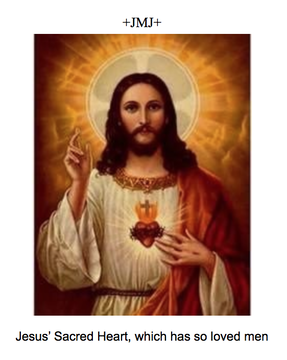
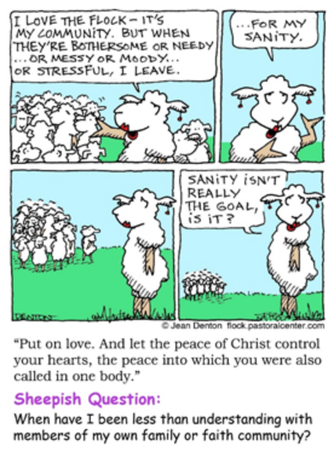

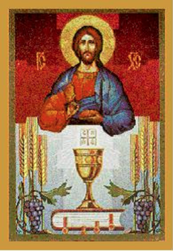

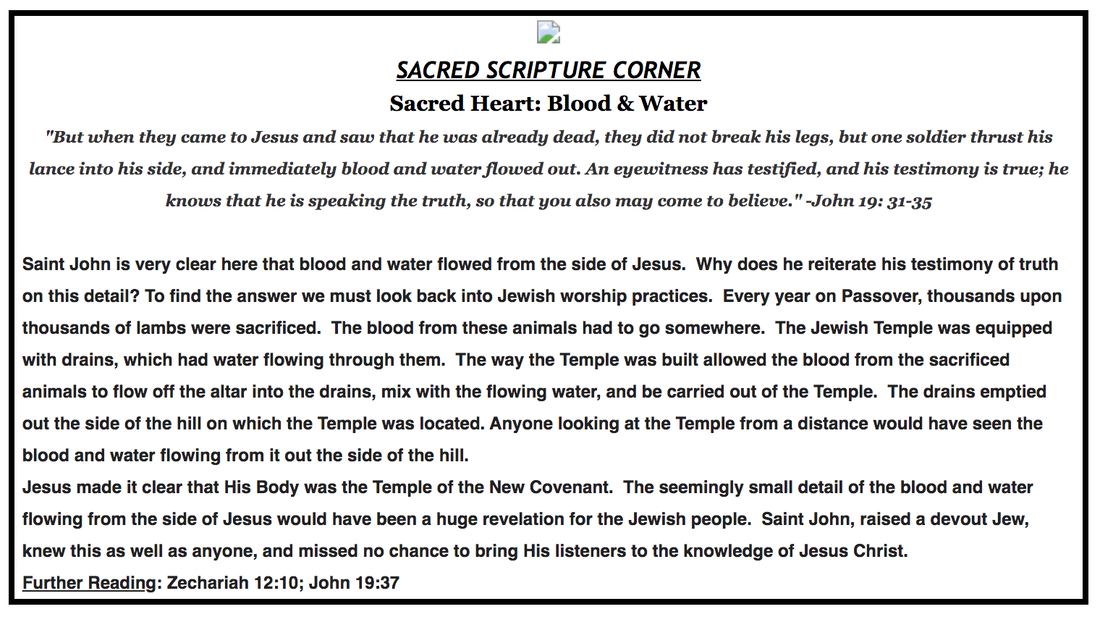

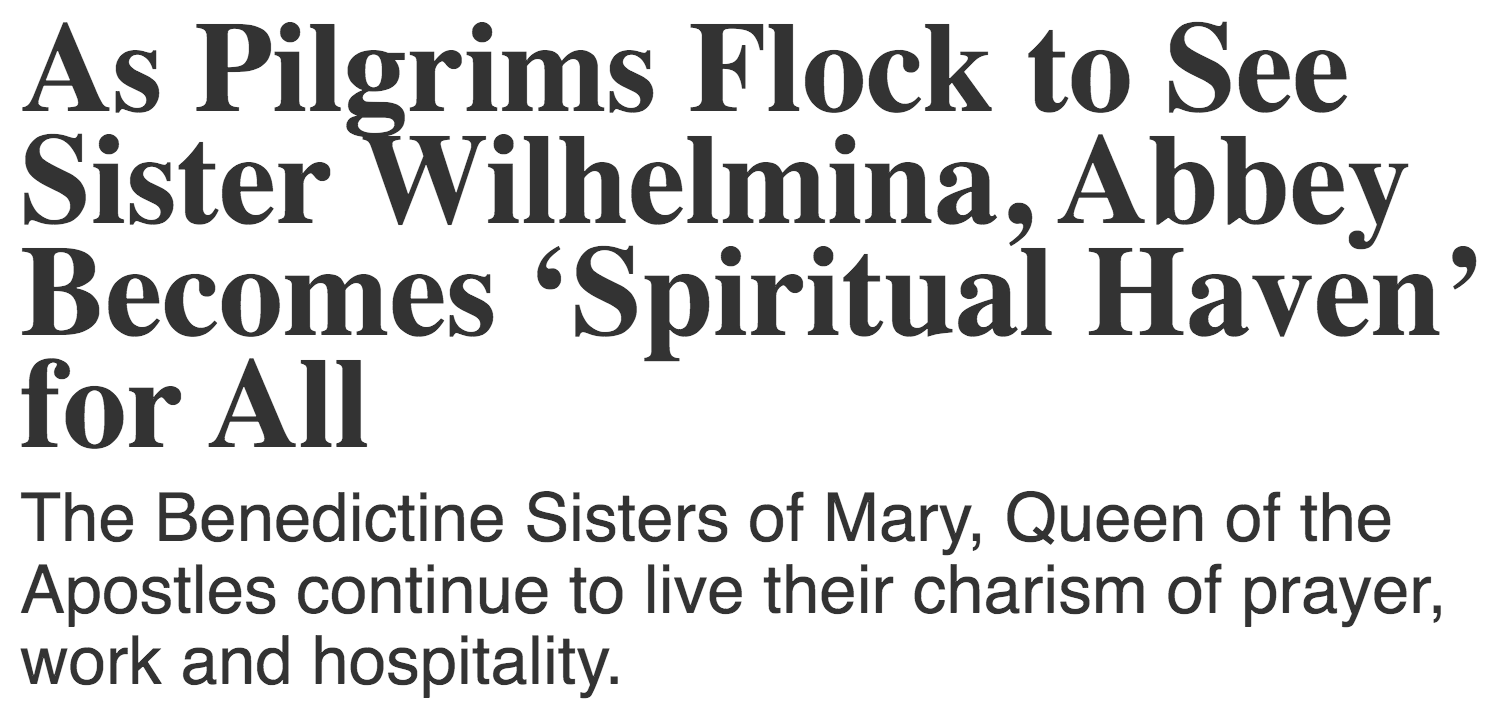
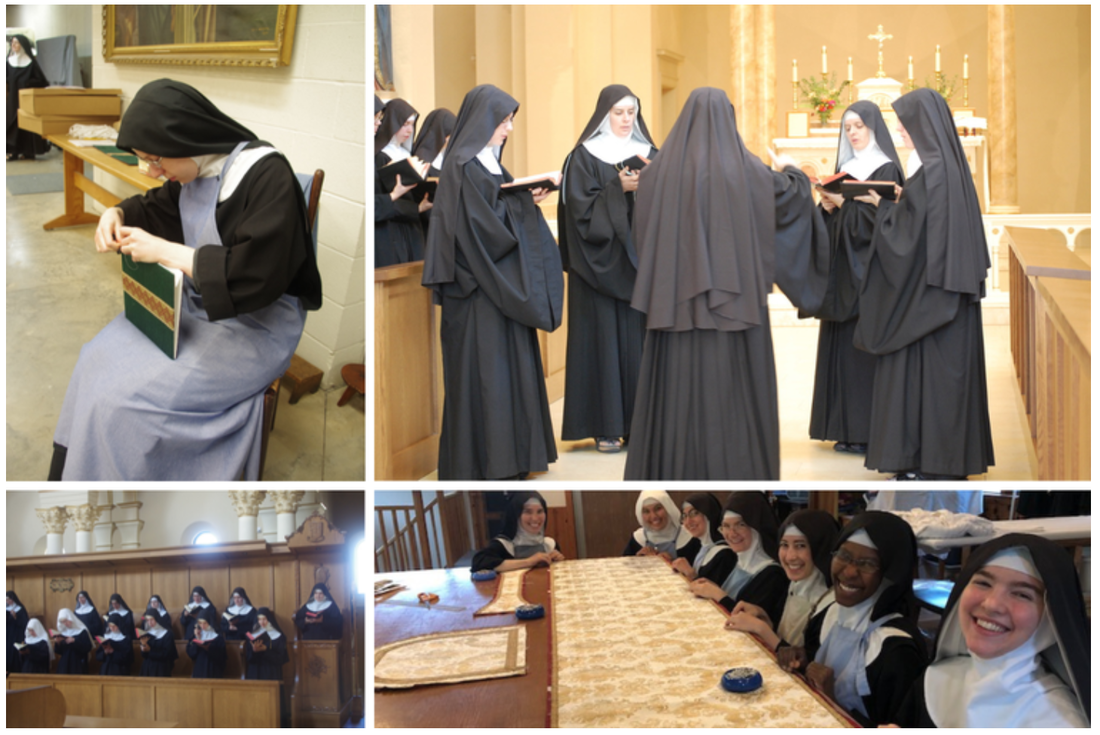
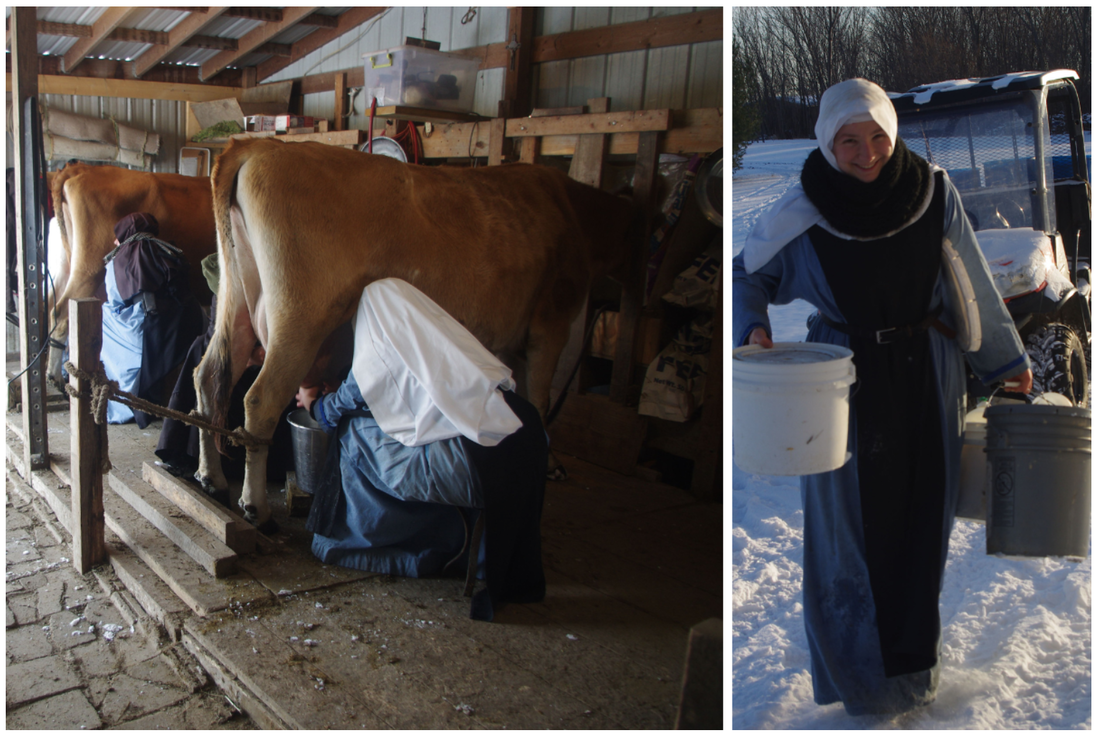


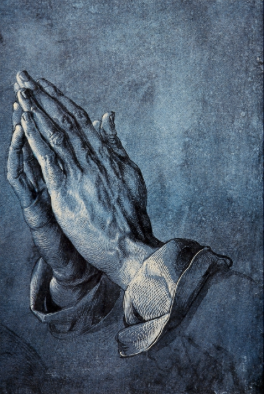
 RSS Feed
RSS Feed
